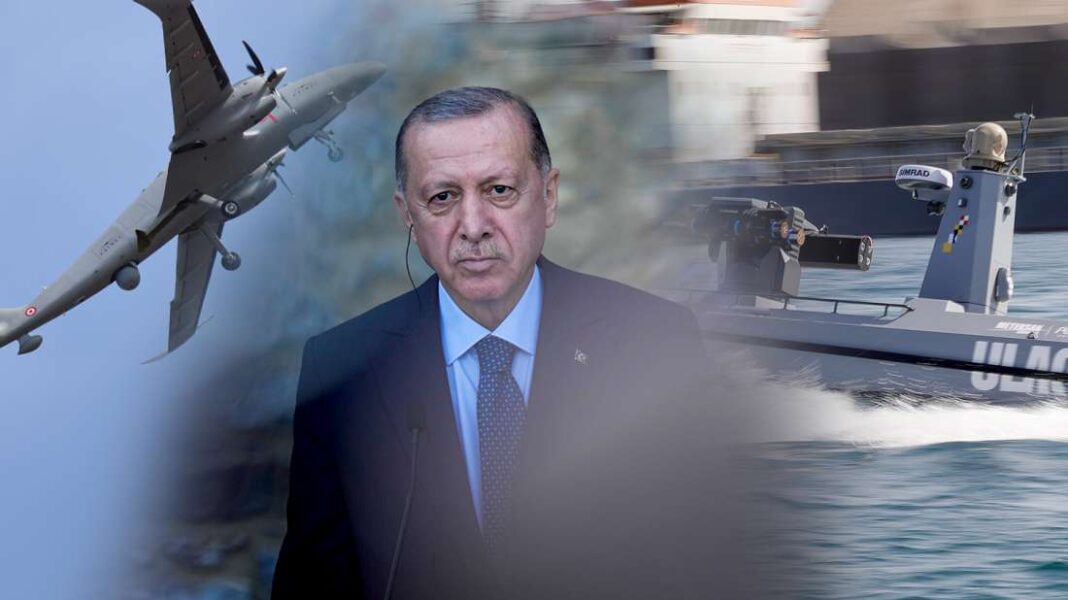The leader of Turkey’s far right political group, the Nationalist Movement Party (MHP), which is also the alliance partner of ruling Justice and Development Party (AKP), Devlet Bahceli, during an address to Turkey’s parliament on May 31 claimed that the US military bases located on Greece posed a direct “threat” to Turkish security.
Earlier Turkish President Recep Tayyip Erdogan, following a Cabinet meeting on May 23, criticized the US’s growing military presence in Greece. There are nearly 10 US bases in Greece, he claimed. Who is being threatened with these bases? Why are these bases being established in Greece?” Erdogan had previously stated on November 13, 2021 that Greece itself had become a US military base following a meeting with Hungarian Prime Minister Viktor Orbán in Ankara.
Apart from strained relations with Greece, Turkey’s policy regarding Sweden and Finland’s joining NATO, is also opportunistic. On May 30, Turkey’s Presidential Spokesperson Ibrahim Kalin held a telephone conversation with US National Security Advisor Jake Sullivan, where Kalin underlined that Turkey would continue its fight against all terrorist organizations with determination. Kalin also referred to Sweden and Finland’s candidacy for NATO stating that those two countries were openly supporting a terrorist organization under different names, namely PKK/PYD/YPG, and it was not possible to imagine their entry in NATO, which provides legal, social and financial opportunities, and which is a security alliance of countries, without taking any steps in these matters.
Meanwhile, Turkey has cancelled the NATO drill in the Black sea. Turkish Foreign Minister Mevlüt Cavuşoglu announced on May 31 that Turkey had cancelled or postponed some NATO drills in the Black Sea over the Montreux Convention provisions. The minister also emphasized that Turkey would not impose sanctions on Russia, as it has the mediator role.
The Turkish government is using the Russian invasion of Ukraine to settle outstanding grievances with much of NATO. Sweden and Finland were expected to join the alliance, in time for the June summit in Madrid. Instead, Turkey has upended this coronation. Turkey, which joined NATO in 1952, seeks to extract concessions from Sweden and Finland on combating terrorism, extraditing citizens of Kurdish origin to Turkey, and lifting the arms embargo that much of the West placed on Turkey following its October 2019 invasion of Syria. The Turkish approach towards Finland and Sweden have underscored how Ankara’s narrow security concerns differ considerably from those of the rest of the NATO alliance, particularly at a time when the alliance has sought to move beyond the war in Afghanistan and return to its core mission of deterring Russia.
Turkey’s military balance vis-a-vis Greece are paramount for national security. The focus on maintaining a more capable military than Athens has direct relevance to Turkey’s position on Swedish and Finnish membership in NATO. The American decision, in this instance, to kick Turkey out of the F-35 program looms large. Washington’s decision came after years of convincing Turkey that its purchase of the S-400 air defence system from Russia would lead to Turkey’s removal from the fighter production program and result in sanctions. Ankara ignored these warnings. The end result was judt what US signalled and Turkey lost its future front-line fighter and now faces sanctions on its defense industry. Greece, in turn, has pledged to purchase F-35 and, importantly, has received upgrades to its legacy F-16 fleet.
Ankara has requested these same aircraft upgrades from Washington, but an unofficial arms embargo Congress has imposed since October 2019 has prevented it. The uncertainty about the future of the Turkish Air Force, and the upgrades to the Hellenic Air Force, has reinforced concerns inside Ankara about the future balance of forces in the Aegean and Mediterranean regions.
Turkey is seeking to rectify what it perceives as an injustice by using its power to deny consensus in NATO and thereby coerce the alliance to take its own national security issues more seriously. Turkey is doing this with blunt force: threatening to block the accession of two new NATO members, threatening to invade Syria (again), and implicitly threatening to further escalate tensions with Greece. The issue, however, is that Ankara’s concerns are unique to Turkey and not shared by the Western alliance. Instead, Turkey’s Kurdish problem is an internal, Turkish-only issue that can be resolved with a return to peace process. Even while NATO members recognize the brutality of the Kurdistan Workers Party (PKK) and its terrorist tactics, they see the group as a product of Turkey’s own democratic failings.
These are Ottoman games Turkey is playing. Turkey is running a blackmail policy. The blackmail as of yet has yielded that Sweden is lifting the arms embargo against Turkey. The blackmails that Turkey has done so far threaten everyone. NATO Secretary General on June 01, announced that a ‘tripartite meeting’ will be held in Brussels to address the concerns of Turkey, which does not take kindly to the NATO membership of Finland and Sweden. Turkey is the center of instability in the Middle East and is also the main center of terrorism and it does this under the umbrella of NATO.
It draws strength from NATO in all its attacks. Now on Sweden and Finland candidature, it is blackmailing again. The disconnect between Turkey and its NATO allies may grow in the coming years, given divergences over Turkey’s national security priorities and Ankara’s willingness to use its position within Western institutions to coerce its allies. The challenges in meeting Ankara’s demands are manifest, signaling that even if there is compromise over one issue, differences between Turkey and the NATO alliance would persist. These suggest that managing Turkey will remain a core issue for NATO for years to come, underscoring how current challenges may continue to fester even if compromises can be found.

